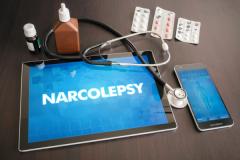
Lifestyle and Behavioral Interventions in Narcolepsy
Panelists discuss how behavioral strategies—including structured sleep routines, scheduled naps, dietary adjustments, light therapy, and cognitive behavioral support—are essential components of comprehensive narcolepsy management, reinforcing that individualized, nonpharmacologic interventions can significantly improve daily function and long-term outcomes.
Episodes in this series

In this section, the conversation shifts from pharmacological treatments to lifestyle and behavioral strategies, which are presented as essential—not just adjuncts—for successful narcolepsy management. The speakers emphasize that creating structure and predictability in sleep-wake cycles helps stabilize brain function in patients with narcolepsy, whose natural circadian rhythms are inherently unstable. Scheduled naps are a cornerstone of behavioral therapy, but success with them varies by individual. The key is tailoring nap length and timing to the patient’s needs, with consistency reinforcing the brain’s ability to anticipate and optimize rest.
Dietary habits also play a significant role. Narcolepsy patients often struggle with glucose sensitivity, which can amplify fatigue following meals. A whole-food, low-processed diet with attention to glycemic stability is recommended. There is emerging, although still preliminary, research on ketogenic diets as a potential intervention due to narcolepsy’s neurological underpinnings. Light therapy is also mentioned as a helpful tool for reinforcing circadian rhythm, ensuring bright light exposure during the day and darkness in the evening. Additionally, a patient’s type of work—especially sedentary, mentally demanding jobs—can exacerbate symptoms, making workplace adjustments a valuable area of intervention.
Lastly, the discussion addresses the psychological aspects of narcolepsy care. Patients often express a need for therapists who understand the condition. The introduction of Cognitive Behavioral Therapy for Hypersomnia (CBT-H) is highlighted as a significant advancement, offering structured support tailored to the psychosocial challenges of narcolepsy. Integrating behavioral therapy with medical management can be highly effective, and some clinicians are now trained to offer both. This holistic, patient-centered approach—including diet, light exposure, work-life balance, and psychological care—enhances quality of life and supports long-term treatment adherence, highlighting the need for individualized care beyond medication alone.
Newsletter
Receive trusted psychiatric news, expert analysis, and clinical insights — subscribe today to support your practice and your patients.






